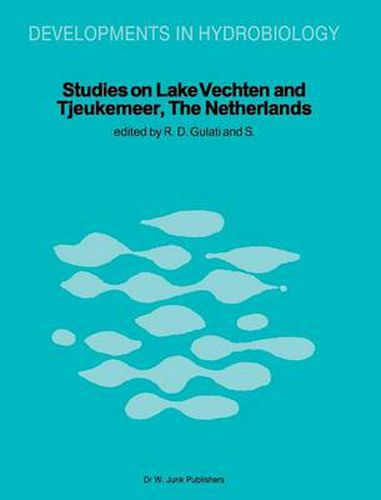Readings Newsletter
Become a Readings Member to make your shopping experience even easier.
Sign in or sign up for free!
You’re not far away from qualifying for FREE standard shipping within Australia
You’ve qualified for FREE standard shipping within Australia
The cart is loading…






This title is printed to order. This book may have been self-published. If so, we cannot guarantee the quality of the content. In the main most books will have gone through the editing process however some may not. We therefore suggest that you be aware of this before ordering this book. If in doubt check either the author or publisher’s details as we are unable to accept any returns unless they are faulty. Please contact us if you have any questions.
The Netherlands, like the other industrialized countries in the northern hemisphere, is faced with increas ing environmental pro blems. Being a country rich in water - at least in terms of surface area - and low-lying, problems related to water are as old as the nation itself. The problems in regard to water quality are becoming more acute and complicated due to the progressive rise in air and ground pollution. Glaring examples are the acid rains and contamination of ground-water resources by toxic, and often illegal, waste dumps. Being a delta country, the Netherlands is also very vulnerable to pollution from the*water sources outside the country’s national boundaries, i.e. the rivers Rhine, Meuse and ScheIdt. Not only the national but also the international authorities are active in developing measures to both prevent and combat water pollution, and to restore as far as possible the natural balance or a ‘reasonable’ water quality. The pollution abatement programmes are based on ecological theories; accepting waterbodies as aquatic ecosystems, the authorities concerned try to influence and lead the progresses in the systems to reach or maintain the desired ecosystem structure. Suter II (1981) mentioned a number of reasons why the attempts to use ecosystem theories to assess the impacts on the environment have been disappointing to date. It is clear that one of the reasons for the failure is lack of proper knowledge.
$9.00 standard shipping within Australia
FREE standard shipping within Australia for orders over $100.00
Express & International shipping calculated at checkout
This title is printed to order. This book may have been self-published. If so, we cannot guarantee the quality of the content. In the main most books will have gone through the editing process however some may not. We therefore suggest that you be aware of this before ordering this book. If in doubt check either the author or publisher’s details as we are unable to accept any returns unless they are faulty. Please contact us if you have any questions.
The Netherlands, like the other industrialized countries in the northern hemisphere, is faced with increas ing environmental pro blems. Being a country rich in water - at least in terms of surface area - and low-lying, problems related to water are as old as the nation itself. The problems in regard to water quality are becoming more acute and complicated due to the progressive rise in air and ground pollution. Glaring examples are the acid rains and contamination of ground-water resources by toxic, and often illegal, waste dumps. Being a delta country, the Netherlands is also very vulnerable to pollution from the*water sources outside the country’s national boundaries, i.e. the rivers Rhine, Meuse and ScheIdt. Not only the national but also the international authorities are active in developing measures to both prevent and combat water pollution, and to restore as far as possible the natural balance or a ‘reasonable’ water quality. The pollution abatement programmes are based on ecological theories; accepting waterbodies as aquatic ecosystems, the authorities concerned try to influence and lead the progresses in the systems to reach or maintain the desired ecosystem structure. Suter II (1981) mentioned a number of reasons why the attempts to use ecosystem theories to assess the impacts on the environment have been disappointing to date. It is clear that one of the reasons for the failure is lack of proper knowledge.